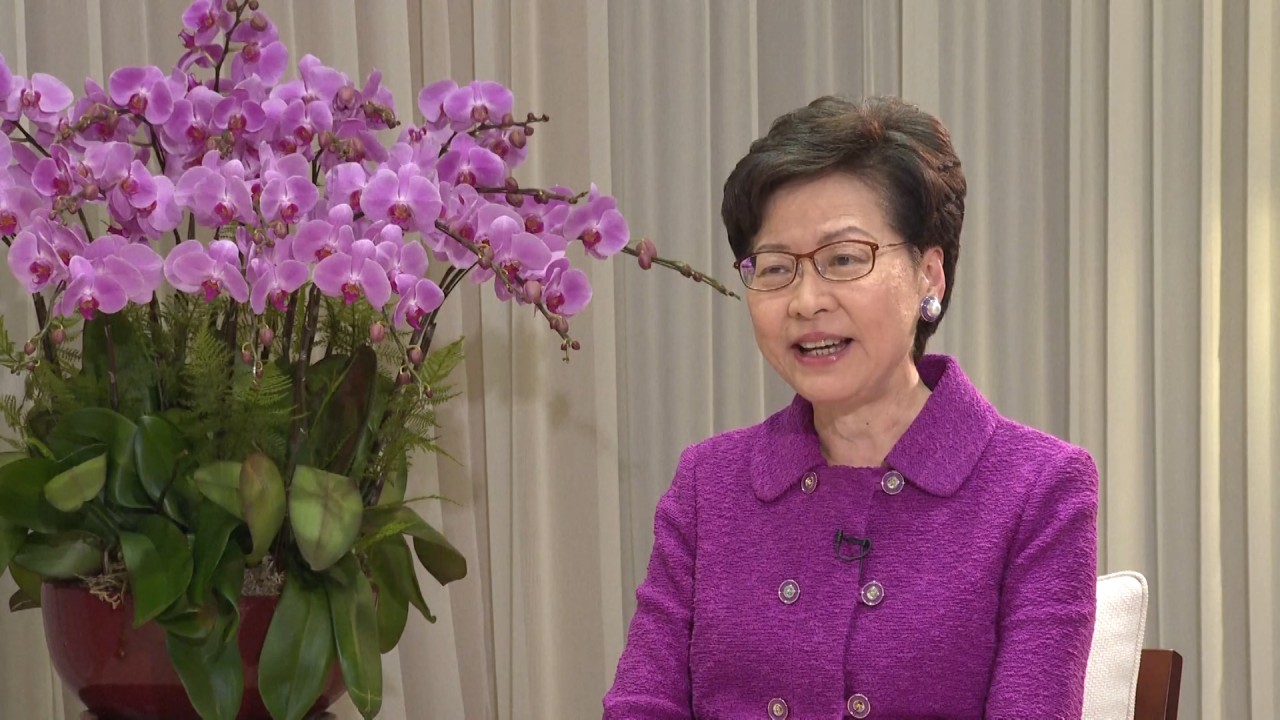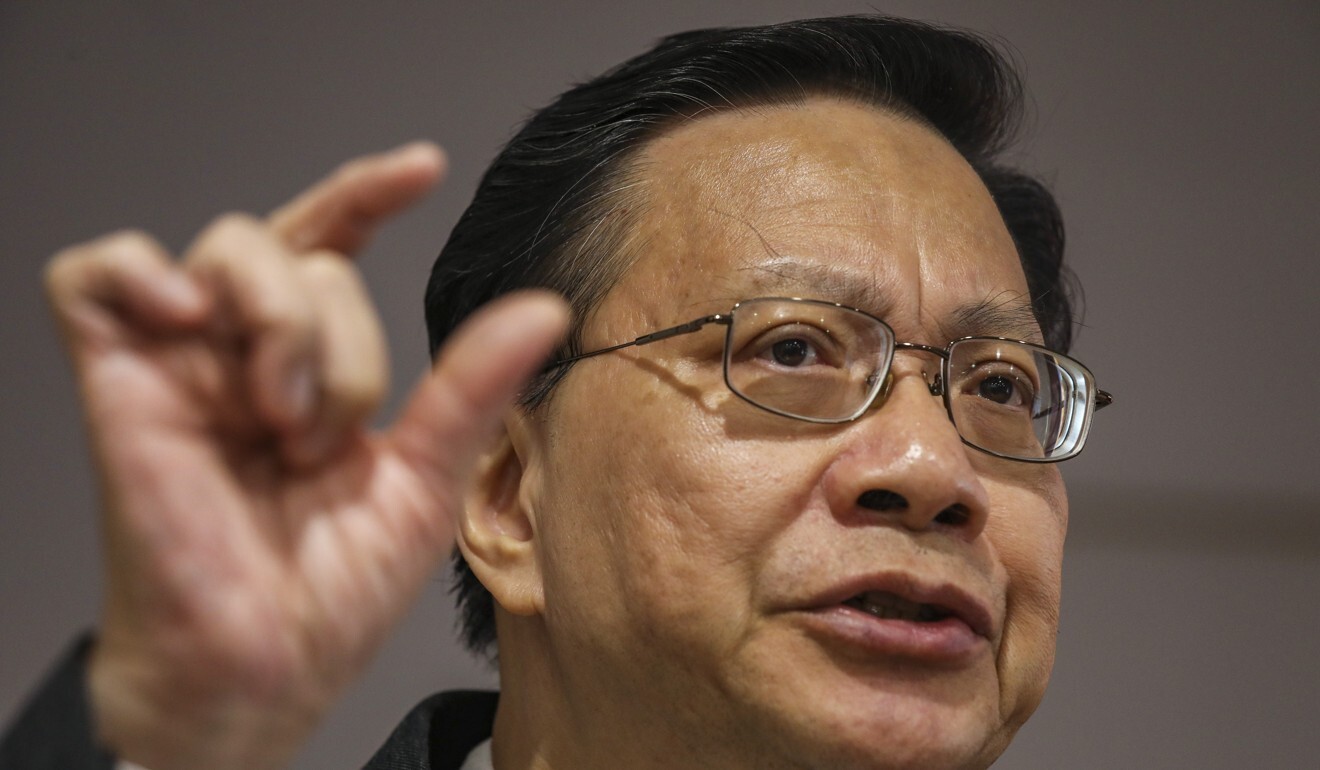
Handed more political firepower, can Beijing-friendly lawmakers crack Hong Kong’s housing crisis?
- The central government has signalled it expects the pro-establishment camp to deliver solutions to one of the city’s thorniest social problems after the election overhaul
- But politicians and government advisers warn the changes could also lead to a legislature adrift from public opinion and a strong-willed leader will be needed to overcome one-sided interests
The message was not lost on pro-Beijing loyalists listening to him in the capital, or back in the city.
Han was serving them notice that once an “obstructionist” opposition was out of the way and the electoral changes gave the pro-government camp the clear upper hand, they had one less excuse not to deliver on the housing issue.
After all, even as he described how opposition in the legislature had stalled progress in improving people’s livelihoods, Han struck a dissatisfied tone over the city’s governance.
“The housing problem in Hong Kong is related to its history and development,” Han said in a video clip shown by a state broadcaster. “Although it is really difficult to solve the problem, we still need to start the work. If we just lay aside the problem and don’t come to a consensus or come up with an idea, and the Legislative Council starts a filibuster whenever there is a solution, Hong Kong people’s interests will be harmed.”

02:40
‘We do not want unpatriotic people in our political system,’ says Hong Kong leader Carrie Lam
With that out of the way, the scale of the housing challenge looms large. About 153,900 families are currently on the list for public housing, with an average wait of 5.7 years, which is nearly twice as long as the government’s pledge of three years.

Who’s to blame now?
But the election changes could dilute their influence in the chief executive election, according to Lau Siu-kai, vice-president of the semi-official Chinese Association of Hong Kong and Macau Studies. Beijing intends to add 300 seats to the Election Committee, taking its size to 1,500. Tycoons, including ones that dominate not only the property market but other key aspects of the economy such as shipping, retail and transport, controlled about 300 seats on the last committee and are seen traditionally as the “kingmakers”. But the new spots could go to ultra-loyalists from prominent mainland Chinese businesses, as well as women and academic groups.
“In the past, some developers would join hands with green groups to ban government projects if they hurt their interests,” Lau said. “I believe that in the future, reclamation, rezoning as well as using the periphery of country parks for housing development will face less of a hindrance.
“In the future, these big developers will not be the dominant power, while destructive opposition forces will have also been removed, so the government can do their jobs more easily,” he said.
Personally, I think that apart from the opposition camp, Beijing was also dissatisfied with some major developers
Two delegates who attended the meeting with Han said he told the pro-establishment camp they would be responsible for making concrete suggestions to the government on how to deal with these deep-rooted social and housing issues.
Property developers had claimed before that red tape and rigid planning rules were hindering their projects, but they gave only a lukewarm response to a “land sharing” scheme launched by city leader Carrie Lam Cheng Yuet-ngor last year.
Under the programme, owners of abandoned farmland can apply to the government to increase the development potential of their plots, but they must set aside at least 70 per cent of the additional floor space for public housing. The government in return will build roads, install a water supply and provide other infrastructure. But as of last month, not a single application had been made, although there were about 10 inquiries.
Wanted: political will and a strong leader
With the opposition effectively sidelined through the election overhaul, there was now a danger that the broad voice of the people might go unheard, warned Dr Lam Ching-choi, a member of the Executive Council, the de facto cabinet of the chief executive.
“It draws my attention to whether these new political forces would only be concerned about their political agenda rather than the public’s voices,” he said. “If this happens, they would also drag society behind and housing and social problems will continue to remain unsolved. More voices representing the needy should be added.”
At the same time, the pro-establishment camp set to dominate the political landscape would be representing different interests, Lam predicted, setting up a need for a strong-willed leader who could formulate policies that would surpass narrow interests.
“To achieve that, I believe the leader should have endorsement and authorisation from the public, and that’s why I think one person, one vote is important, even if it has to come with Beijing pre-screening candidates,” he said. “This is to avoid the leader being drawn to one side when formulating policies. Only if the public can pick their leaders, then he or she could do things easily.”
Five commercial land parcels at old airport may be used for private housing
Tony Tse Wai-chuen, a delegate to the Chinese People’s Political Consultative Conference, also believed that although Beijing blamed the opposition camp for preventing society from making progress on root problems, the government also had responsibilities to bear.
“In the past, we were stuck partly because of the opposition’s filibustering in the Legislative Council, but the government also had a lot of bureaucratic problems, with some ministers lacking ambition,” said Tse, who is also a pro-establishment lawmaker representing the architectural, surveying, planning and landscape sector.
Tse said Han’s speech showed Beijing wanted to create a “new and easier foundation” for the Hong Kong leadership to govern, but the city still needed a capable chief executive to alleviate social problems.
“After all, I think the central government cares a lot about whether the pro-establishment camp or delegates can make good contributions,” he said. “We simply have greater responsibilities, as well.”
But some veterans of the housing sector were sceptical that electoral changes would guarantee roadblocks for new projects were removed. One government official familiar with land and housing said politics was just one of the hurdles.
“Land creation is a long-drawn process involving not only Legco in terms of consultation and funding approval, but also various administrative and statutory procedures,” the official said on condition of anonymity.
These included feasibility studies, town planning, environmental impact assessments and gazetting of roadworks for possible public objection. The process could easily run longer than a decade for large-scale projects such as new town developments.
“While a more cooperative or less critical Legco may help shorten the time a bit, more material improvements could be made if we can streamline the various procedures,” the official said.

Anthony Cheung Bing-leung, secretary of housing and transport from 2012 to 2017, agreed restructuring Legco would help expedite matters but only up to a point.
“From my experience, a proposal can drag on under three situations. In the first, lawmakers want to prove they are not rubber stamps. They press for more information for the debate. In the second, there are queries and bargaining, where sectoral or local interests are involved. Both the pan-democrats and the pro-establishment camps have done this.”
Only the third type of delay – filibustering by some opposition lawmakers to paralyse the government – would be eliminated through the legislative overhaul, Cheung said.
Developers’ acquisition of old buildings seen rising amid drop in supply of residential plots
“After all, the normal questioning process is mutually beneficial and it informs officials about some perspectives they may not have been aware of,” he said. “I believe that will go on.”
Cheung noted that housing involved interests outside the chamber and other connected tricky issues such as land resumption and compensation often took time to resolve.
“It’s rather wishful thinking to hope that the electoral changes alone could clear everything along the path,” he said.
With the revamp focused on sidelining the opposition, Chan Kim-ching, founder of Liber Research Community, said local advocacy groups such as his were concerned they would be viewed as “troublemakers”.
“With all the opposition politicians disqualified, there is already little chance to make opposing voices heard in the chamber or district councils. We wonder if concern groups would be the next target under the current political climate. But silence does not mean problems are solved. They could only become hidden.”


